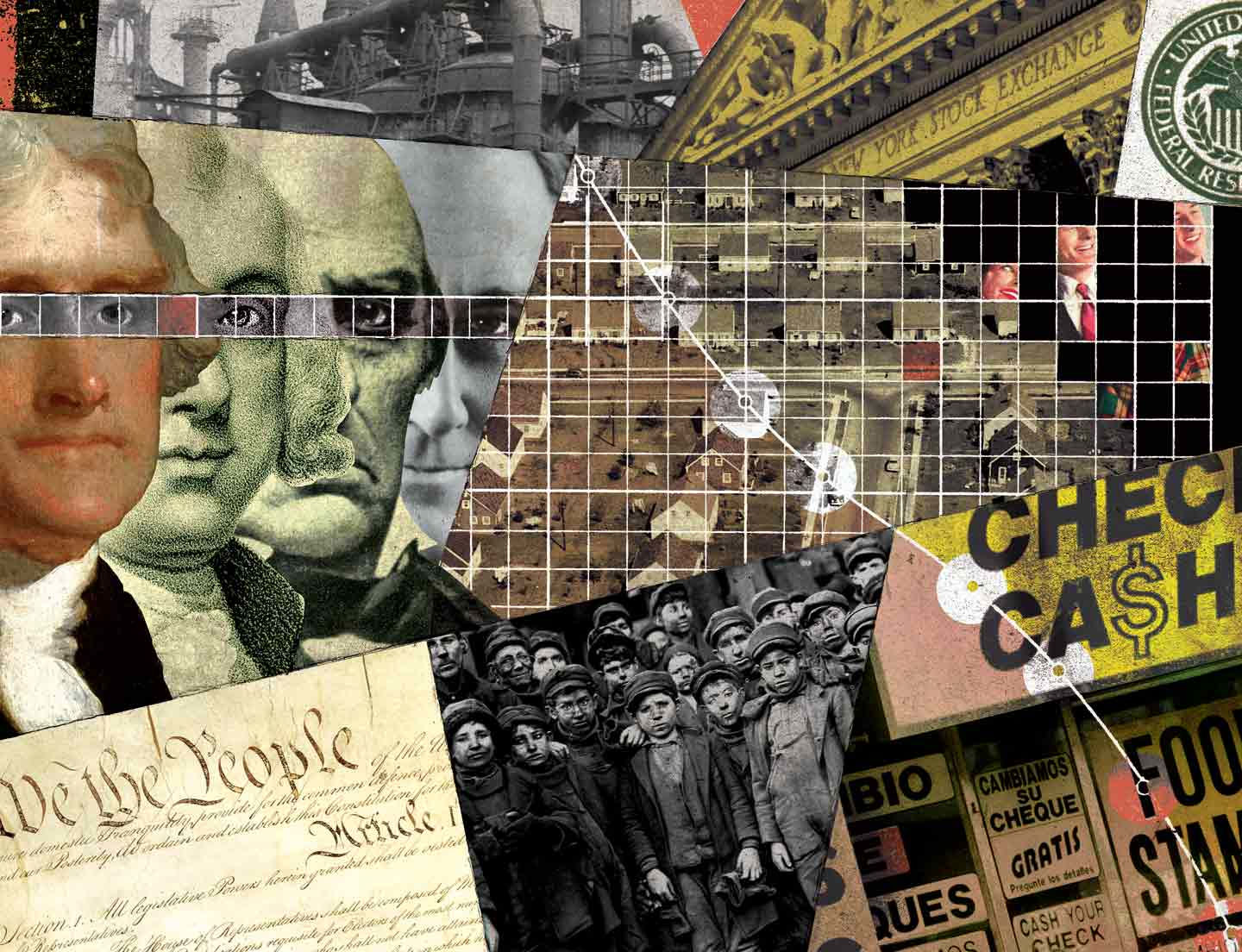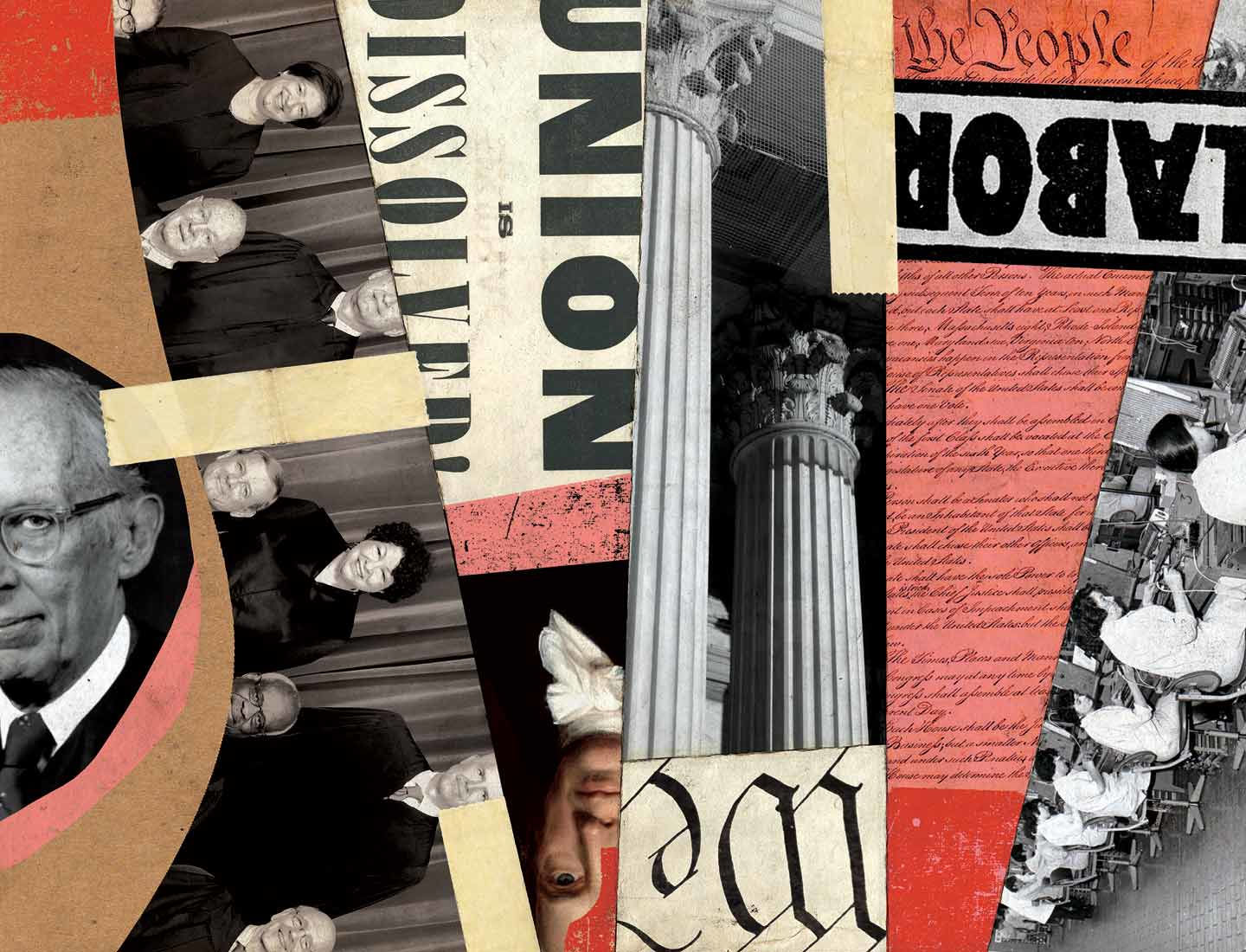
It is a matter of faith among liberals and progressives that the Constitution puts them at a severe political disadvantage. The Electoral College allowed Republican candidates to win the presidential election in 2000 and 2016 while losing the popular vote. Rural, low-population Red States are significantly overrepresented in the U.S. Senate where a state like Wyoming (population: half a million) has the same number of senators as California (40 million).
Recent Supreme Court decisions have only intensified the imbalance by opening up the floodgates to unlimited election campaign contributions while gutting the landmark Voting Rights legislation of the 1960s. Earlier this year, the Court essentially turned every state's public sector into “right to work” realm, circumscribing union finances and political influence. The Court will now move decisively in a reactionary direction with the confirmation of Brett Kavanaugh, and may be in position to cancel any progressive legislation enacted by a Democratic administration and Congress for a long time to come.
These common-sense arguments can be bolstered by critical historical insights about the origins of the Constitution. Instead of the marvelous document that extolls the highest values of democracy as it is normally portrayed, the Constitution can also be seen as a means to entrench a conservative social order and subvert popular democracy, while normalizing slavery.
All the same, this view of the Constitution as an inherently conservative document is a static view of history, of the Constitution itself, and the potential for significant change. Starting at the beginning, the Constitution established a divided government with representatives chosen by the people (elections), while the Bill of Rights gave meaningful rights to individuals and the press. These fundamental building blocks of representative government and free expression have allowed for significant changes since the beginning, the most obvious being the abolition of slavery and the extension of the right to vote to women and blacks.
The Constitution certainly did not make these steps inevitable, but it did not prevent them either. Yes, it took a powerful abolitionist movement and bloody civil war to free blacks and a continuing struggle after that to dismantle Jim Crow as well as continuing fights to secure equal voting rights. These historical changes were neither written into the Constitution, nor inevitable. Instead, they were the result of inherently political processes. The Constitution provided a political framework in which abolitionist and other popular movements struggled to change the course of U.S. politics and make major changes to the framework itself.
This is the argument Francis Fox Piven makes in Challenging Authority. Yes, the mostly landowning (and many slaveholding) framers intended to create a system that preserved their economic and political power, but they also realized they could not impose a harsh authoritarian regime on the country. They needed the support or at least the forbearance of city folk, merchants, former soldiers and small farmers, so they designed a flexible system that allowed for some popular participation and gave individuals rights against arbitrary state power.
No doubt, those rights have often been violated by the government and are currently being violated by the national surveillance state. It is also true that major structural elements of U.S. politics prevent the rise of third parties and give conservative, rural states electoral advantages. Nonetheless, the Constitutional framework has allowed for politics to take place – sometimes radical politics – by ordinary citizens.
That was the crux of the matter at the beginning as it is now, whatever the problems with the Constitution. And there are hugely important aspects of American politics that are largely economic and ideological in nature that would exist even if the U.S. had a very different foundational document. In other words, if progressives can muster the political power to change the Constitution, they could transform American politics, even without amending the Constitution.
Take the conservative rural states that have so much political weight, both in terms of the makeup of the Senate and the Electoral College. The claim that this political weight needs to be reduced accepts the notion that these states are inherently hostile to progressive values and will always resist change. In other words, they need to be, in essence, suppressed or cut down to size. That is hardly a progressive impulse.
Instead, progressives should recognize and build on the reality that the people in these areas are suffering from neoliberal economic policies just as much as other parts of the country. Factory farms are increasingly dominating large parts of the rural economy, gobbling up small farms and asserting monopoly control over wholesale markets. In larger towns, manufacturing jobs have disappeared along with the unions that represented workers.
Other parts of the country have been dominated by corporations that extract coal and other fossil fuels while victimizing laborers and despoiling natural environments. In dozens of states, public investments in education and other important services have been cut by reactionary governors and state legislatures. Unemployment and underemployment afflict large swathes of rural America, while big box stores have wiped out local businesses. Spiraling addiction rates, suicides and opioid-related deaths are clear evidence that many small towns and rural parts of this country are in an economically-induced social crisis.
Unlike conservatives, progressives actually have solutions to these kinds of dislocations. Here are just a few: increase spending on education and public services, including libraries, universal health insurance and rural health clinics; promote and generously fund a range of local economic development initiatives; support community broadband and local power generation using wind and solar; invest in programs to stabilize small farms and transfer ownership to the next generation. Such proposals and many others are being increasingly pushed by activists at local, state and national levels as ordinary people, most visibly teachers, are starting to take back power.
As progressives continue to run for office and propose major changes to build economic prosperity in rural communities and small towns, as they are starting to do, the political clout of rural America in the Senate and Electoral College will be much less problematic and perhaps a source of progressive strength against financial capital, corporations and the rich.
The question for progressives when it comes to rural states is not about how to minimize their political influence, but how to solve their problems – the same as it is in the rust belt and urban areas. The first step is to actually understand that most problems – unemployment and underemployment, de-industrialization, stagnant wages, declining union strength, poor educational opportunities, addiction – are driven by the kind of economy we have and the political control of the 1% through campaign funding laws, gerrymandering, and voter suppression. In the end, the relative political weight of low-population states is a political problem that can and must be addressed, not a defect in the Constitution.
A similarly broad view could be taken about the Electoral College. Talking about this institution may be a good tactic to clarify the issues progressives are confronting, and getting rid of the Electoral College is simply the right thing to do. But it is also the case that the Electoral College system is much more a symptom of the dysfunctional and unjust political system in this country than it is a major cause. No doubt, it provided a thin window of opportunity for Donald Trump to become president. But that opportunity would have been nonexistent without substantial voter suppression and feckless Democratic politics over the past three decades. If these are addressed, the Electoral College becomes irrelevant.
In a recent article in The Nation, legal scholar Jedediah Purdy argues that the U.S. now has a “Bosses’ Constitution” in which the First Amendment has been “weaponized” to favor employers, the wealthy and corporations, instead of ensuring full political rights to all citizens. The creation of the corresponding “Bosses’ Supreme Court” has been a long-term political project starting with the Lewis Powell memo in the early 1970s to the U.S. Chamber of Commerce calling on business to “make a full-court press for the ‘preservation of the system [of free enterprise] itself’.” In other words, the makeup of the dominant body in the U.S. that authoritatively decides what the Constitution says – the Supreme Court – was the result of political struggle.
As Purdy puts it: "At any time in U.S. history, the Constitution’s principle concepts – liberty, equality, political accountability – have meanings that judicial interpretation assigns to them. These interpretations – even when they’re styled ‘originalist’ – always respond to the political movements, crises, and felt imperatives of the times, as inflected by the elite lawyers who populate the Court.”
The Constitution is inevitably a political document whose interpretation and control will remain the subject of political struggle. In that struggle, the reactionary right has been ascendant since the intervention of the Court in the 2000 elections. And with further rulings on matters directly related to elections, combined with Republican legislative victories during the Obama years, the Court is now a central part of what Purdy calls a “Bosses’ Republic,” run by and for wealthy individuals, corporations and their allies.
The solution, then, is not reforming the Constitution; not now. That cannot happen given the current distribution of power in the U.S. Rather, progressives must build power and gain control in the current environment, as difficult as that might be. As Karl Marx wrote, people make their own history, but they do not make it in circumstances of their choosing. That is the current reality progressives must fully face up to. Once they have gained significant power, structural changes – including Constitutional reforms – can be brought about to entrench and sustain that power. This is what the conservative movement realized decades ago. This is what progressives need to be doing now. Constitutional reform is a goal, not a strategy.
To build power, progressives must build strong and deep social movements to expand the electorate, increase citizen participation in politics and win elections. In addition, they must build an organizational infrastructure that provides thought leadership and personnel to staff government agencies (national, state and local) once they win power. They must also engage in the struggle for ideas, including, crucially, Constitutional ideas. These help to illustrate injustices that have to be reversed and articulate the legal foundations for a more just society. In Purdy’s words, progressives “need to formulate...a constitutional vision of their own that takes economic power seriously and puts democratic power first.”
Yes, progressives should try to change the “rules of the game.” But such change is properly seen as a way to consolidate political power that has already been won. As they organize and build power, progressives can and must transform the economy, rebuild public institutions and make sure all Americans have healthcare, education and housing as a right. And in the process, when sufficient power has been accumulated, progressives will be in position to change the Constitution to enshrine those rights and principles.














